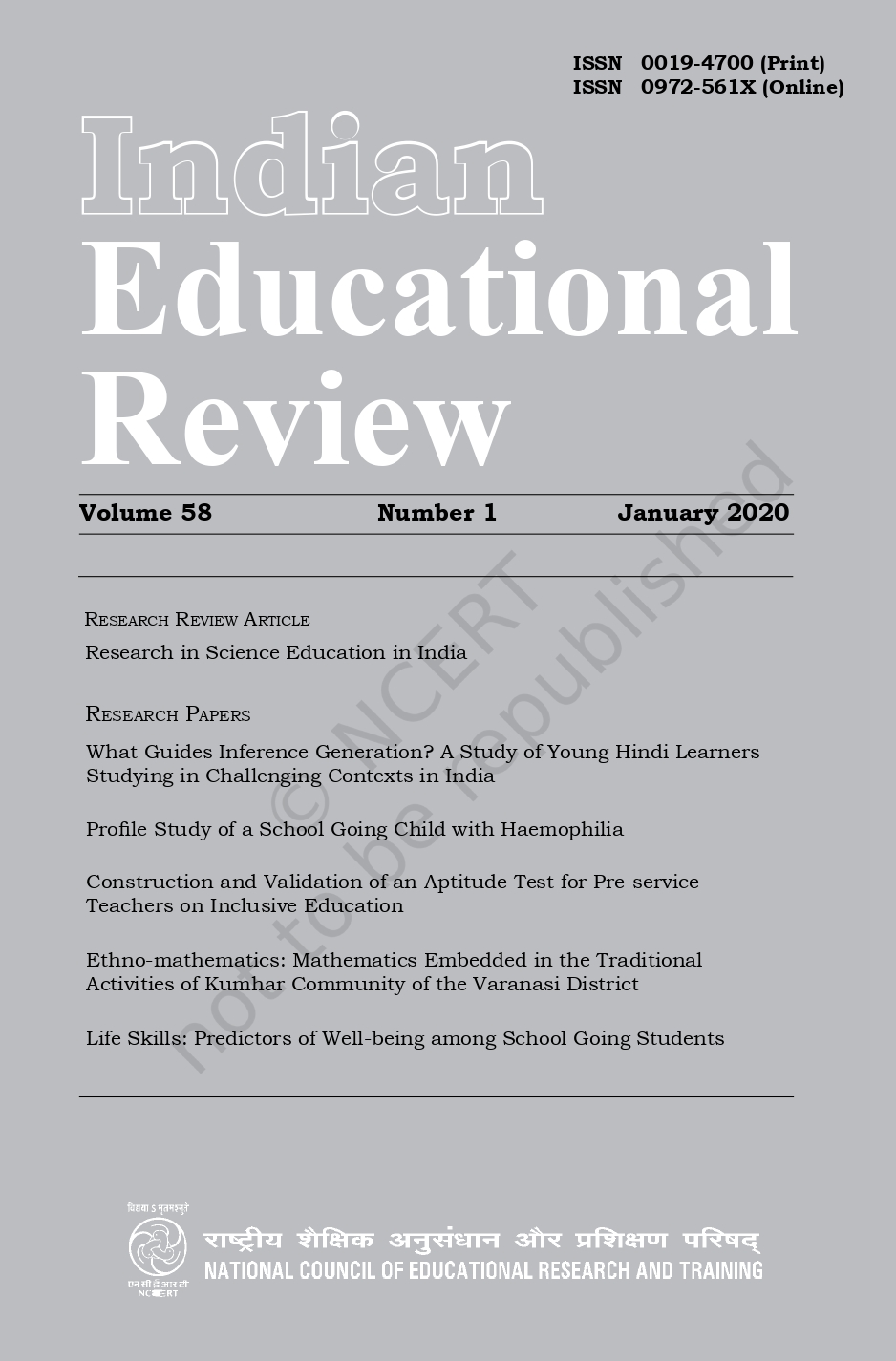What Guides Inference Generation? A Study of Young Hindi Learners Studying in Challenging Contexts in India
Published 2020-01-31
Keywords
- World Knowledge,
- National Curriculum Framework 2005
How to Cite
Abstract
In a vast multilingual country like India, primary education is offered in various languages as Mediums of Instruction (MoI) to support the state languages and foster social justice in education. An important milestone of primary education is to help learners develop comprehension skills in MoI to process information and lay a strong foundation for education. Comprehension involves ‘inference generation skill’ that helps learners formulate multiple possible answers. Teaching and assessment in India have a product-based content testing approach and teachers are not trained to deal with individual differences in responses in a constructive manner. In this paper, learners are assessed in oral and print mode to understand what gives rise to individual differences in comprehension through Hindi as MoI. A group of 30 bi or multilingual learners, 7 to 12 years old, attending Class IV in state run primary schools in Bihar (India) participated in the study. A quantitative analysis of learner performance shows that inference generation is affected by modality (oral or print), gender and the complexity of inferences. A qualitative analysis of individual variations shows that of the total number of inappropriate responses to comprehension questions, many refer to experiential or world-knowledge inferences but fail to link them to the specific story-based information. This indicates difficulties with inference generation and the ability to select only the relevant parts of the response. The findings have implications for pedagogical methods of promoting inference generation skills using world knowledge in combination with text-based information to offer meaningful feedback.

